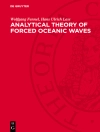This brief is based on an analysis that was performed on the 2010 winter storms that caused considerable damage to coastal communities in Atlantic Canada. The hazards that occurred were associated with storm surge,
high waves, coastal erosion, and flooding. The analysis covered a large multisite longitudinal project, where a participatory action research (PAR) approach was used to understand how people in 10 coastal communities perceive and experience extreme weather events and to enhance their capacity to adapt and improve their resilience. This brief exposes the outcome of two series of interviews and activities that were conducted during the project, as well as the lessons learned, and general elements that should be considered when researchers collaborate with communities to define adaptation and resilience strategies. It makes an important contribution to the application of PAR as an integrated (social-ecological) approach to resilience and how such an approach can be adapted also to other communities.Jadual kandungan
Chapter 1. Introduction.- Chapter 2. Coastal Communities in Atlantic Canada.- Chapter 3. Background Research.- Chapter 4. Methodology.- Chapter 5. Findings from Initial Interviews.- Chapter 6. Findings from Follow-up Interviews.- Chapter 7. Implications and Lessons Learned.- Chapter 8. Conclusions.
Mengenai Pengarang
Professor Liette Vasseur is a full professor in the Department of Biological Sciences at Brock University, where she is also a member of the Women and Gender Studies program and the Environmental Sustainability Research Centre, one of the five transdisciplinary spaces at the university. Since 2014, she holds the UNESCO Chair on Community Sustainability: from local to global at Brock. She currently leads the thematic group on Climate Change Adaptation of the Commission for Ecosystem Management of the International Union for Conservation of Nature. Her research program is highly interdisciplinary and links issues, such as community-based ecosystem management, climate change adaptation and resilience, and sustainable agriculture. Her community-research work with the City of Greater Sudbury led her to receive in 2011 the Latornell Pioneers Award from Conservation Ontario. She was part of the co-direction committee of a large project on Coastal Communities Challenges in
the face of Climate Change, funded by the Social and Humanities Research Council of Canada. She has produced over a hundred publications and made more than 200 presentations as a researcher. Her work focuses not only on Canada, but also internationally, such as in China, where she is a Minjiang Scholar at Fujian Agriculture and Forestry University. She is currently the President of the Canadian Coalition of Women in Engineering, Science, Trades and Technology (CCWESTT) and the President-Elect of the International Network of Women Engineers and Scientists (INWES).
Dr Mary J. Thornbush is currently Adjunct Professor in Geography at Brock University, a fellow of Biological Sciences, and associate member of the Environmental Sustainability Research Centre at Brock University, Canada. She was recently Honorary Research Fellow at the University of Birmingham, UK, where she was part of ESPRU (Energy, Society and Place Research Unit) since 2011. Prior to this, Dr. Thor
nbush was Assistant Professor of Geography and Interdisciplinary Studies at Lakehead University – Orillia, Canada. She was Senior Research Associate of the Oxford University Centre for the Environment in 2007-2008 after implementing the Ivy on Walls project (2006-2007) as part of the Oxford Rock Breakdown Laboratory at the University of Oxford, UK. She obtained her doctorate from the University of Oxford (Oriel College) in 2006.
Professor Steve Plante has a Ph.D. in Geography and a Masters in Anthropology. He is a full professor at the Université du Québec à Rimouski, where he teaches Social Development, Territorial Development and Regional Development. He is a member of the Brock Environmental Sustainability Research Centre, MEOPAR network, and Centre de recherches sur le développement territorial (CRDT). He was Director of the Coastal Community Challenges – Community University Research Alliance (CCC-CURA) project funded by Social Sciences and Humanities Rese
arch Council of Canada. The objective of this project was to reinforce the capacity of governance and resilience of the communities in the context of climate change. His research on riparian communities, coastal communities, and insular communities in Brazil and in the Estuary/ Gulf of St-Laurent in Quebec has a particular focus on governance, capacity building, climate change including adaptation, resilience, the dynamics of human behaviour, the question of the Commons, and local development. His fieldwork experience, and his view about interdisciplinary/ intersectoriality/ existing knowledge, have developed his interest for Territorial Development, believing that the Social Sciences will play an increasing role in this field of study and intervention. This interest was mobilized in “Notre Golfe” network, funded by the Fonds de recherche du Québec – Nature et technologies (FRQNT), where he acts as Co-director.












